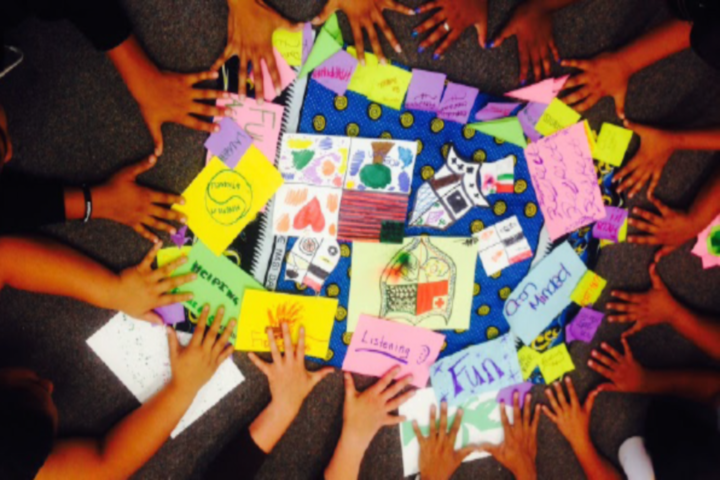Some educators in the Oakland, California school district are concerned about how the district’s budget could impact a restorative justice program credited with lowering student suspension and expulsion rates.


Some educators in the Oakland, California school district are concerned about how the district’s budget could impact a restorative justice program credited with lowering student suspension and expulsion rates.
Since 2006, the Oakland Unified School District’s restorative justice program “has grown to almost every middle and high school in the district, along with a few elementary schools,” but officials and teachers involved “are worried that the most recent district budget cuts will hurt the program, curtailing years of hard work,” according to East Bay Express.
OUSD cut $9 million from last year’s budget and is slated to cut another $10 million for 2018-19, but what exactly the cuts will mean for students is unclear. David Yusem, the district’s restorative justice coordinator, said he laid off seven people out of 35 on his staff, but plans to hire some of them back once the budget specifics are determined.
“We’re still in that space of waiting for the money to land,” he told the news site.
East Bay Express reports:
The Oakland program is built on a three-tier system: community-building circles … which encourage respect and healthy relationships; the restorative process, which involves students who have harmed each other in order to repair their relationship and hold them accountable; and circles to support students who are re-entering the school system after suspension, expulsion, or incarceration.
Yusem contends the new approach is transforming the district’s approach to student discipline, which in the past resulted in a disproportionately high percentage of black and Latino students sent home for misbehavior.
“The initiative itself is definitely part of the culture of our school district,” he said. “It’s absolutely vital.”
Since 2010, OUSD’s restorative justice program has steadily grown from a small pilot project at Cole Middle School in 2007 to a districtwide program on a “shoestring” budget comprised of city and state funds and foundation grants in 2010, to a massive $2.5 million program that employs dozens of facilitators in more than 20 elementary, middle, and high schools.
Yusem is concerned some schools may lose on-site facilitators through the district’s budget cuts, and that would ultimately make the program less effective.
In “The Tragedy of Moral Education in America,” Institute for Advanced Studies in Culture founder James Davison Hunter, points to the importance of schools in helping students develop morality and character.
“The components of morality are express in a community’s institutions, including its moral rules,” Hunter wrote. “When it functions well, our moral culture binds us, compels us, in ways of which we are not fully aware.”
LEAPS, a leading social and emotional learning program for students in K-12 schools, offers several free lesson plans specifically designed to help teachers address important mental health and development issues – many of the same issues addressed through restorative justice work.
The free lesson plans, released in June, address issues like recognizing and avoiding problems, applying emotional management skills, being aware of other people, understanding your community, and living with diversity, as well as several other topics.